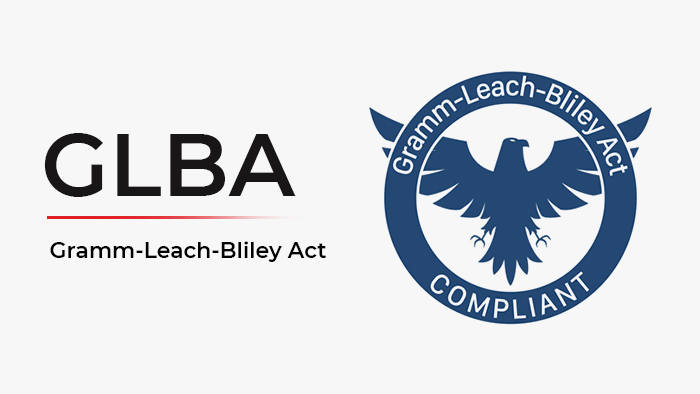The Shocking Facts About The New FTC Safeguards Rule That Affect Nearly EVERY Small Business Operating Today
As former President Ronald Regan once said, the scariest words you’ll ever hear are “We’re from the government, and we’re here to help.”
In this case, the government is trying to help by forcing nearly all businesses to implement and maintain a strong cyber security program to protect the customer information these companies host – definitely not a bad thing, and all businesses should take this seriously without the government mandating it.
Sadly, the majority of small businesses don’t take cyber security seriously enough and believe they are doing enough to prevent a cyber-attack when they aren’t, which is why the government is having to step in and create laws (the GLBA Act) to enforce better security protocols.

What Is The New FTC Gramm-Leach-Bliley Act Safeguards Rule And Who Does It Apply To?
Back in April of 2022, the FTC issued a new publication entitled “FTC Safeguards Rule: What Your Business Needs to Know.” This was published as a “compliance guide” to ensure that all companies that fall under the Safeguards Rule maintain safeguards to protect the security of customer information.
While you might think your business is “too small” to need to comply or doesn’t hold any data “that a hacker would want,” you’ll be shocked to discover you are likely to be wrong on both fronts.
Hacking groups use automated bots to randomly carry out their attacks – and small businesses are their #1 target due to the gross negligence and inadequate protections they have. You are low-hanging fruit. That’s why it’s not only the obvious organizations, such as CPAs, financial institutions and credit unions, that need to comply. Here’s a short list of just a few of the organizations that fall under this new law. You should know that this is NOT a complete list:
- Printers that print checks or other financial documents.
- Automotive dealers who provide financing for car purchases.
- Any organization that accepts credit or loans for the goods and services they sell, whether or not the credit is granted.
- Companies that do tax preparation or credit counseling of any kind.
- Real estate settlements, services or appraisals.
- Career counselors that provide services to people employed by or recently displaced from a financial organization.
As you can see, the companies that must comply are growing rapidly. Bottom line, if you handle any kind of financial data or personally identifiable information, you need to make sure you are complying with these new standards.
What You Need To Do Now
The rule requires you to implement a “reasonable” information security program. But what does that mean? For starters, you need to designate a qualified individual to implement and supervise your IT security program – and you cannot outsource this. Yes, you can and should get a professional IT firm like us to guide you on the implementation, but the buck still stops with you.
The person you designate doesn’t have to have a background in IT or cyber security – but they will be the person responsible for ensuring your company is taking reasonable precautions to comply with the new security standards.
Second, the Safeguards Rule requires you to conduct a risk assessment to initiate an effective security program. From there, you would work with your IT company (us!) to roll out a plan to secure and protect the data you have by putting in place access controls, encryption, data backups, 2FA and a number of other protections.
Cyber security is not something you do once – it’s an ongoing effort of protection as new threats evolve. If you want to see where your organization stands on cyber security, fill out the form below for a quick, easy and completely free Cyber Security Risk Assessment. That is the first step toward complying and will give you the information you need to know about your own security stance.
Let’s Chat!
To receive your free 10-minute discovery consultation, simply introduce yourself via the form. A member of our team will reach out shortly to setup an introductory call.
SPAM NOTICE: We value your privacy and will never share or sell your contact information.
